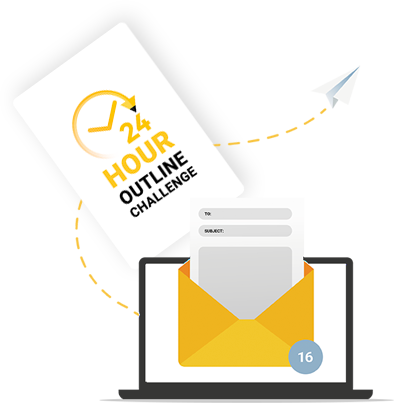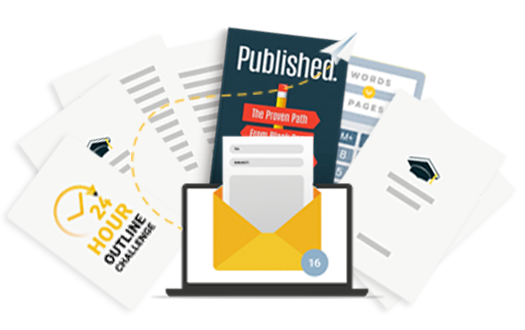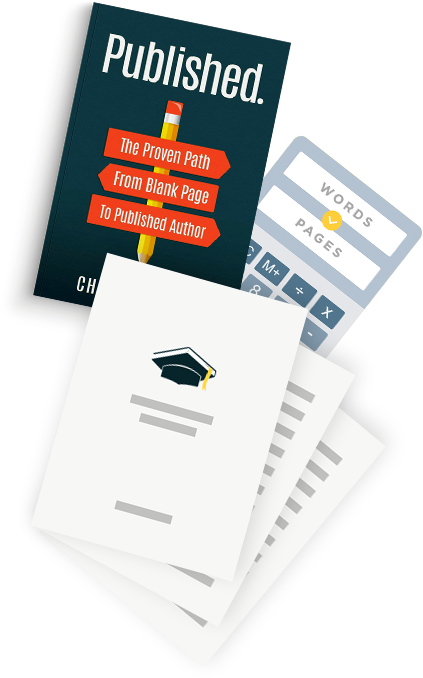What are literary agents looking for and accepting in today’s publishing world? While each agent varies in their exact wishlist and what they expect from potential clients, there are eleven areas you should focus on before submitting your query.
Literary agents are searching for specific qualities and elements in a manuscript. Due to their background in publishing, each agent knows what types of genres they believe will be successful in the market. Because of this, it’s crucial to answer the question, what are literary agents looking for?
In this article, I cover what agents really want, current trends, various genres agents look for, and more. Let’s get straight into it.
What Are Literary Agents Looking For? What’s Covered
- What Do Literary Agents Really Want?
- 11 Tips For Submitting Your Work To An Agent
- Current Trends: How Do You Impress A Literary Agent?
- What Are The Odds Of Getting A Literary Agent?
- What Genres Are Literary Agents Looking For?
- FAQs
What Do Literary Agents Really Want?
A great manuscript and a viable platform are two of the specific must-haves every agent expects a writer to bring to the table. However, before diving into the exact specifics, it’s important to identify which category you fall into.
There are three main categories for writers, and understanding which one you best fit will equip you to best query agents. Answering, what are literary agents looking for, starts here.
The Unknown, Aspiring Author
Many writers fall into this first category and statistically, chances are high that you do as well. This category is the normal, every day person who aspires to become a published author but doesn’t have a strong fan base or following.
If you’ve engaged with the publishing world for any length of time, you likely heard the term platform.
An author platform is a simple way to describe how many people you could potentially reach with the network you already have: social media following, speaking engagements, etc.
So what are literary agents looking for in unknown, aspiring authors? Oftentimes, an agent looks for a standout idea, unique writing voice, and the marketability of the manuscript. More on this later.
The Known, Aspiring Author Who Can’t Write
Next up in what are literary agents looking for is a category you may be more familiar with than you realize. This one is where ghostwriting often comes into play.
For example, have you ever browsed the shelves of your local bookstore or surfed the web to find that one of your favorite celebrities published a book? Their celebrity status may be from modeling, entrepreneurship, acting, cooking, or something else, but usually, it is not because of their writing prowess.
Established publishers like publishing well-known individuals due to the marketability of the book.
When you ask, what are literary agents looking for, one of the answers is platform. If a celebrity has three million followers on Instagram, the publisher is much more likely to sell copies than if they publish a new author with 200 followers on Instagram.
If you fall into this category, you will likely be paired with a ghostwriter or an editor who will help you write your manuscript.
The Known, Aspiring Author Who Can Write
Finally, there is the category of known individuals who are adept at writing. Consider James Patterson’s memoir, James Patterson.
By the time he decided to write his story, he was so well known as an author that he single handedly met both needs:
- He had proved over and over he could write and write well
- He had the platform to make his book a #1 New York Times bestseller
But what if you don’t fall into these second two categories? What are literary agents looking for in aspiring writers who have normal social media followings? Below are eleven areas to assess prior to submitting your work to an agent.
11 Tips For Submitting Your Work To An Agent
1. Create A Standout Query
Your query letter is the first impression an agent has of you and also a key answer to the question, what are literary agents looking for? It’s crucial to make sure you stand out. Crafting your query is much more than quickly putting an email together and hitting send.
Your query makes or breaks your chance of receiving a request from the agent, as well as your potential for signing with the agent.
When you write your query, be sure to follow the guidelines of the specific literary agency you choose to contact. Instead of creating a batch of queries and copy and pasting them with the only difference being the name and email address, create unique queries for each agent.
Typically, you should include a brief bio, your elevator pitch (or hook), your genre, wordcount, and maybe a brief synopsis.
2. Build A Gripping Hook
Speaking of hooks, what are literary agents looking for? Your elevator pitch is how you grab an agent’s attention in just one or two lines. Consider David Bell’s hook for The Finalists:
“Six students at a private college agree to be locked in a house in order to compete for a lucrative scholarship given by a wealthy donor. When one of the students dies shortly after the competition begins, the other students realize they’re trapped with a killer.”
Use your hook to grab, and keep, the attention of the agent. Your goal is to get them to keep reading no matter what.
3. Focus On Your Voice And Writing
If you have a great query and the agent likes your hook, they will likely ask for a writing sample. What are literary agents looking for? Agents want a writer with a great voice. At this stage it’s crucial to send your best, polished, error-free, zero-typo work.
A few additional tips:
- Make sure you are true to your voice throughout your entire writing sample
- Focus on your own style of writing rather than emulate another author
- Know the different genre conventions specific to your manuscript
If you have a talent, innate or learned, for writing, this will keep the agent turning pages. You may wonder how to discover your writing voice or how to know if you’re writing is up to par.
A great way to identify your particular voice is a lesson I learned from my own writing mentor years ago: pretend you are talking to your best friend about a particularly exciting experience. Write exactly how you would speak to them. This is your writing voice.
Second, how do you know if your writing is up to par? Engage in your writing community and ask for feedback. Reach out to writing coaches and consider a developmental edit of your work.
I’ve been on both sides of this process: coaching writers over Zoom calls and being coached by bestselling authors. Never underestimate the power of a fresh pair of professional eyes on your work. Remember: what are literary agents looking for? A great voice.
4. Write An Engaging Story Or Plot
Even if you write nonfiction, your plot should engage your readers. At this point, your reader is simply a potential agent, but down the road it will be an acquisitions editor, your editor, and eventually, your target audience. If you write fiction, an easy way to think of your storyline is via the term plot.
A typical plot has three key moments:
- The inciting incident or start of the story
- The climax of your story
- The falling action or ending of your story
The same applies to nonfiction, but an easier way to think about it is with the term story.
- Are you taking your readers on a journey from first page to last?
- How will your audience change as a result of reading your book?
No matter what genre you write, make sure each chapter builds on the previous one. I’ve read nonfiction that is more of a page-turner than fiction, so don’t ignore the importance of compelling nonfiction. What are literary agents looking for? Agents want books that captivate them.
5. Reveal Compelling Characters
Sage archetypes are great for fantasy and science fiction. Anti-heroes often work well in young adult novels. Foil characters frequently appear in both fiction and nonfiction.
Again, regardless of the genre you write, your characters should compel the potential agent to continue reading. Beta readers can help by providing feedback on what they do and do not like about your characters.
Running For My Life, by Lopez Lomong, is nonfiction but has one of the most compelling characters I’ve ever read—Lopez.
Riven, an older book by Jerry B. Jenkins, is fiction but the characters are so compelling they feel human.
For guidance on how to write characters that compel, reference your favorite movies, shows, and books. What about the protagonist drew you in? What about the hero makes their particular story come to mind when people ask you what your favorite book is?
Use these answers for inspiration as you write your own manuscript. What are literary agents looking for? Compelling characters.
6. Showcase Your Platform
Let’s say you spent hours crafting your query, creating your hook, and months writing and editing your manuscript. You send your query off to a list of potential agents. One writes back:
“Thank you for querying me. I enjoyed your writing sample. Before moving forward I would like to discuss your platform. Can you please send me your book proposal and include your marketing plan?”
Oh no, the dreaded word: platform. If you write fiction, your platform won’t be as pertinent as it would if you write nonfiction.
Fiction often sells based on the quality of the story and writing, while fiction often sells based on the credibility of the author.
If you want to write Christian fiction for women you won’t need to focus on your platform as much as if you want to write inspirational nonfiction for women. But remember, what are literary agents looking for? Platform.
Showcase your platform by including:
- Your current social media numbers
- Your newsletter subscribers
- The concrete steps you are taking to build your platform
- Past speaking engagements
- Booked speaking engagements
Of course, this is not an exhaustive list of what platform can include, but it will get you started!
7. Know Your Comparable Titles
What are literary agents looking for in regards to comparable titles? Well, your comparable titles, often referred to as your comps, are crucial to your marketing plan.
For example, if you wrote a self-help book, knowing the best books in self-help is a must. You need to know what titles you are competing against and how you stand out from the current market.
When someone asks, “What is speculative fiction?” What titles come to mind? If you write in this genre, choose the top three to five titles as your comparative books.
Two aspects to note: the comparative titles you choose should be current works, no more than five years old. Additionally, saying your manuscript will be the next Harry Potter shows naivety, not promise.
When choosing comparable titles, usually it’s best to settle on ones that sell well but are not anomalies. What are literary agents looking for? They want to see that your book has a place in the market but also brings a new angle.
I find it’s helpful to briefly (one to three sentences) summarize the similarities between your book and a comp title, then briefly share how yours is unique.
8. Research The Marketplace
What are literary agents looking for next? Along with comparable titles, a deep dive into understanding what is selling and why is a must.
During the global pandemic, dystopia took a back seat. Generally speaking, the world felt they were living in a dystopia and did not want to swap one difficult reality for another.
Romance continues to sell well, memoirs that take a unique angle seem to be more current, and fantasy never seems to go out of style.
Know your audience, what they are reading, why, and how your manuscript fulfills a need. This need could be as simple as entertaining young readers over their holiday break. What are literary agents looking for? A timely read.
9. Build Your Brand
Yes, I know writers want to be writers, but today, writers must market themselves. To do so, it’s important to build an effective brand.
When teaching workshops on this topic, I often use the example of a writer who writes in one genre and uses website and social media colors that contradict this genre.
Imagine if Stephen King’s social media were pastel colors? The King of Horror would not be on brand.
Your brand includes your entire online presence: social media, website, etc. As you grow your platform, your brand may encompass topics you speak on, how you dress, and more.
Rather than grow overwhelmed at branding, simply focus on enhancing your current presence. Agents want to see that you know what you write and how to share it. Essentially, focus on being cohesive across platforms.
10. Focus On Your Long-Term Career
Writers do not pay agents to represent them. Agents take a percentage (often 15%) after they land a contract for their client. Because of this, agents look for clients who want to pursue a career rather than fulfill a one-time bucket list item.
If an agent had to find new clients every time they secured their current client-list a contract, their income would hardly be reliable. Because of this, when seeking representation, be clear that you want to build a career as an author.
11. Don’t Hide Your Enthusiasm
Just as word-of-mouth marketing is some of the most effective marketing out there, enthusiasm sells. What are literary agents looking for? Passionate writers!
Agents can tell if you truly care about your work and are ready to put the effort in to make your book sell. It’s up to the agent to connect you with the best editors and publishers, but at the end of the day, you are the writer.
If you are enthusiastic about working with an editor to make your manuscript the best it can be, working with a publisher to market your book, and doing anything else necessary, this speaks. Balance your enthusiasm with professionalism and you will stand out.
Current Trends: How Do You Impress A Literary Agent?
Impressing a literary agent comes down to being yourself and presenting your best work. However, there are specific steps you can take to leave your mark and make them remember you.
Self-publishing trends for 2024 reveal that authors are becoming even more creative with how they reach their audiences and make an impact. The same should be true for aspiring authors as well.
Know Who You Query And Why
You would be surprised how many writers query agents who do not represent their genre. One way to impress an agent is to show you did your homework.
Research the agent you want to query, including:
- Recent contracts they secured
- Recent books they played a part in publishing
- Their wishlist
One of 2024’s publishing trends is a hyper specification in genre and categories. This means it can help you to know exactly where your book fits in the marketplace, why, and why this particular agent is the best fit for you and your manuscript.
Understand Micro-trends And How You Fit
What are literary agents looking for? Impress an agent by showing that you have taken notice of the micro-trends and can discuss why your manuscript is unique.
With the elevated focus on homesteading since 2020, and the added focus on sports since a certain couple began dating, there are many micro-trends to be aware of.
Your manuscript may fit one of these trends or even stand out as more of a perennial book in a fast-changing marketplace.
What Are The Odds Of Getting A Literary Agent?
I’ve heard it said that signing with a literary agent is as difficult as landing a traditional book deal, but the odds are in your favor if you keep at it. The bad news first: the odds of getting a literary agent can be as low as 1 in 6000.
Now the good news: Most literary agents reject 95% of all submissions due to the book not meeting the required standards. Simply meet the standards, and you’ll be in the 5%.
What Genres Are Literary Agents Looking For?
Writers specialize in writing specific genres and agents focus on representing specific genres. The important factor to realize is that as big as the publishing world may seem, much of it relies on interpersonal relationships.
When an agent sits down to read a manuscript they must decide which editors at which publishing houses they could submit it to.
When they think of editors, it’s not faceless people that come to mind. Oftentimes, it’s their colleagues, someone they had lunch with last week, or even a friend.
Agents are specialists, so what are literary agents looking for? It depends on the agent.
FAQs
Question: What are literary agents?
Answer: A literary agent is an individual who represents your work to traditional publishers and takes care of the business side of contracts. An agent is extremely helpful for new writers as well as seasoned writers because they know the ins and outs of the industry so well.
For example, if you are new to traditionally publishing, it may come as a surprise that many publishers do not accept unsolicited manuscripts, or manuscripts sent in via the writer. Many publishers only accept manuscripts sent in by a literary agent.
In this way, an agent acts as part of the vetting process for you and your book. If you are able to sign with an agent, the publisher recognizes that your writing is solid and an industry professional takes you seriously. Because of this, they will be much more likely to look at your manuscript.
Literary agents are one of the backbones of the publishing industry and a crucial part of getting your work in front of the right people.
Of course, if you decide to self-publish you will not need an agent, but if you want to traditionally publish your book, signing with a good literary agent is one of your first main steps to becoming published.
Question: How do I find a literary agent?
Answer: Don’t get discouraged when looking for agents. Some agents may love your work and want to represent you, but they simply do not have the right contacts.
To save time (and your reputation), only query agents who represent your specific genre. When you begin looking into agents it is important to consider the genre you write in as well as the genres they represent. Here are the three best ways to find a literary agent:
#1 – Make Use of Search Engines
A simple way to find agents is to use QueryTracker, Writer’s Digest, or Publishers Marketplace. Some websites allow you to categorize what type of agent you need and therefore lessen your time spent in your search process. For example, you can check certain categories that apply to you and leave categories that do not apply, blank.
#2 – Reach Out To Writing Friends
Another great way to find an agent is by simply asking your writing community who their agents are. When I was signing with my first agent, I reached out to a writer who had signed with the same agency. I wanted to have a good understanding of her experience and how the agency worked before I put my name on the contract.
#3 – Attend Writing Conferences
Writing conferences are perhaps one of the best ways to sign with a literary agent. Not only do they allow you to present your work to an agent in person, but they also provide you the opportunity to ensure that your pitch gets through to them.
Rather than wonder if your email arrived in their inbox, you can sit across the table from them and pitch your work, live. Chatting in person also allows you to clear up any potential misunderstandings and provide further clarity on your platform and overall writing experience.
Question: What should I be aware of before signing with a literary agent?
Answer: Like every industry, the publishing industry also has a list of things to take note of prior to signing a contract. As you seek out a literary agent, beware of any who ask for any form of upfront payment, no matter what the reason.
You should never have to pay an agent anything other than the roughly 15% commission they receive after they land you a book deal.
A second important factor to be aware of, no matter how well-known the agency, is the fine print in the contract. You want to be extremely clear on:
- What exactly you are signing your name to
- How long the agent/writer relationship will be in effect
- How to void the contract if necessary, and if you can
- What is expected of you
- What you can expect of them
- Rights, foreign rights, etc.
This list is by no means exhaustive. It is highly recommended that you consult a lawyer before you sign your contact.
While reputable literary agents want to support you and your journey to becoming a successful author, understanding exactly what’s in the contract will help you start off on the right foot and with a healthy, mutual understanding.
What Are Literary Agents Looking For: Your Next Step
You now know what literary agents are looking for. Remember, the odds of signing with a literary agent may feel low (and they are), but simply by following the guidelines you can drastically improve your chances.
When you consider what a literary agent does for you, the doors they can open, and the negotiations they can work in your favor, it’s well worth the effort.
Which steps do you feel most confident in, and which ones do you feel you could benefit from further guidance pursuing?
- Creating a standout query?
- Building a gripping hook?
- Focusing on your voice and writing?
- Writing an engaging story or plot?
- Revealing compelling characters?
- Showcasing your platform?
- Knowing your comparable titles?
- Researching the marketplace?
- Building your brand?
- Focusing on your long-term career?
- Showing your enthusiasm?
To help you choose your next best step forward, check out this in-depth publishing comparison. This will help you determine which path is best for you!




